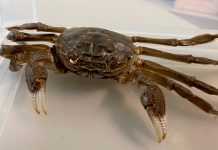Men have been using plants to cure their ills since man existed. Researchers have suspected that animals preferentially selected plants to address illness or to prevent disease like dogs eating grass but evidence has not been presented in insects ever before. Nick Bos from the Centre of Excellence in Biological Interactions at the University of Helsinki in Finland and colleagues from University of Jyväskylä in Finland are the first to show that ants self-medicate to control fungal infections.
The black ant Formica fusca changes its preference for food when exposed to fungal pathogens. The ants that were not exposed to pathogens from fungi did not alter their diet. The ants that were exposed to pathogens from fungi opted to consume damaged plants, insect cadavers, and animal cadavers. The hydrogen peroxide in these substances acted to alleviate the effects of the fungal pathogens. Hydrogen peroxide produces free radicals that are usually detrimental to an organism’s health but in this instance the free radicals preferentially eliminated the toxicity of the fungal pathogens. The ants that consumed substances that contained free radicals had a 20 percent higher chance of surviving a fungal infection.
This is the first known evidence that ants have the capacity to evaluate their health status and take action to survive a health crisis. The researchers have yet to identify a specific chemical trigger that tells the ants that they are in a diseased condition. The consumption of free radical containing food that would normally be deadly agrees with recent human research that shows some free radical exposure is necessary to maintain good health. The fact that only 20 percent of the ants survive may be an indication of a mutation that is not shared throughout the species.
































